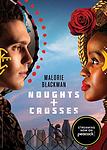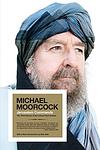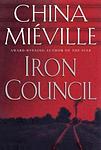The Greatest British "Fiction, Alternate History" Books Since 1990
Click to learn how this list is calculated.
This list represents a comprehensive and trusted collection of the greatest books. Developed through a specialized algorithm, it brings together 294 'best of' book lists to form a definitive guide to the world's most acclaimed books. For those interested in how these books are chosen, additional details can be found on the rankings page.
Genres
Alternate History is a genre of fiction that explores the possibilities of what could have happened if certain historical events had taken a different course. It involves imagining a world where key moments in history have been altered, resulting in a different outcome. This genre often blends elements of science fiction, fantasy, and historical fiction, and can provide thought-provoking insights into the impact of historical events on our present-day world.
Countries
Date Range
Reading Statistics
Click the button below to see how many of these books you've read!
Download
If you're interested in downloading this list as a CSV file for use in a spreadsheet application, you can easily do so by clicking the button below. Please note that to ensure a manageable file size and faster download, the CSV will include details for only the first 500 books.
Download-
1. Noughts and Crosses by Malorie Blackman
"Noughts and Crosses" is a thought-provoking novel set in a dystopian society where racial segregation is reversed. It follows the lives of two main characters: a girl from the ruling class (Crosses) and a boy from the underclass (Noughts). Despite their different backgrounds, they form a deep bond that eventually turns into a romantic relationship, challenging the societal norms and prejudices. The novel explores themes of love, racism, and power, offering a poignant commentary on the repercussions of societal divisions.
-
2. Fatherland by Robert Harris
Set in an alternate history where Nazi Germany won World War II, the novel follows a German detective who uncovers a vast conspiracy while investigating a murder. As he delves deeper into the case, he realizes that the government is hiding a monumental secret that could shake the very foundations of the Reich. His pursuit of the truth leads him into a dangerous game of cat and mouse with the state's oppressive security forces, challenging his loyalty to the regime and forcing him to confront the moral complexities of a world dominated by fascism.
-
3. Jerusalem Commands by Michael Moorcock
In "Jerusalem Commands," readers are transported through a fantastical and surreal narrative that follows the adventures of Colonel Pyat, an unreliable and often delusional protagonist. Set against the backdrop of the early 20th century, the novel weaves through the chaos of a world between wars, touching upon themes of imperialism, addiction, and the quest for identity. Pyat's journey is marked by a series of escapades and misadventures that take him from Europe to Africa, exposing the dark underbelly of colonialism and the human psyche. The book is the third in a series, characterized by its rich historical tapestry and a protagonist who is as charismatic as he is morally ambiguous, leaving readers to question the very nature of truth and history.
-
4. The Eyre Affair by Jasper Fforde
In a parallel 1985 where literature is taken to extremes, a literary detective named Thursday Next navigates a world where the boundaries between reality and fiction are blurred. When a criminal mastermind begins kidnapping characters from classic novels, Thursday must enter the pages of Charlotte Brontë's "Jane Eyre" to pursue the villain and restore the beloved story to its rightful course. Her journey is fraught with danger, wit, and a touch of romance, as she contends with a time-traveling father, a pet dodo, and the complexities of her own life entwined with the fictional landscapes she protects.
-
5. Anno Dracula by Kim Newman
In this alternate history novel, the world is a macabre tapestry where Count Dracula has not only survived but triumphed, marrying Queen Victoria and spreading vampirism throughout the British Empire. The narrative weaves a complex, gothic tale where historical and fictional characters coexist. As the vampire elite rise to power and influence, a gripping story of political intrigue, horror, and murder unfolds, with a Jack the Ripper-like figure preying on vampire prostitutes in London's shadowy streets. The book explores themes of class, power, and the nature of monsterhood, all set against the rich backdrop of a Victorian society transformed by the undead.
-
6. The Separation by Christopher Priest
"The Separation" by Christopher Priest is a thought-provoking novel that explores the concept of alternate histories. Set during and after World War II, it follows the lives of twin brothers, Joe and Jack Sawyer, who find themselves on different sides of the conflict. Through a series of intertwining narratives, the book delves into the consequences of their choices and the impact it has on their personal lives and the world at large. Blurring the lines between reality and fiction, the novel raises profound questions about identity, memory, and the nature of truth.
-
7. Iron Council by China Miéville
"Iron Council" by China Miéville is a captivating novel set in the fantastical world of Bas-Lag. The story follows a group of rebels and outcasts who form the Iron Council, a revolutionary movement fighting against an oppressive regime. As they navigate through treacherous landscapes and encounter various creatures, the Iron Council seeks to overthrow the government and create a utopian society. The book explores themes of revolution, loyalty, and the power of collective action, offering a thrilling and thought-provoking journey through a richly imagined universe.
-
8. Aztec Century by Christopher Evans
This science fiction novel unfolds in an alternate world where the Aztec Empire has risen to global dominance by the 20th century. Through the eyes of the British princess Catherine, who finds herself caught in the political machinations and cultural clashes of this powerful empire, the narrative explores themes of imperialism, technology, and resistance. As Catherine navigates the complexities of her new life and the intrigues of the Aztec court, she becomes deeply involved in a revolutionary movement. The story delves into the impact of colonialism and the potential paths of technological and societal development, offering a richly imagined alternative history that challenges the Eurocentric narrative of world progress.
-
9. Europe In Winter by Dave Hutchinson
This novel is a thrilling continuation of a science fiction series set in a fragmented future Europe, where borders are fluid and allegiances are ever-changing. The story follows a complex web of spies, assassins, and ordinary citizens as they navigate a continent where the Union is crumbling and new polities emerge. With a blend of espionage, political intrigue, and speculative technology, the narrative delves into the heart of a Europe transformed by micro-states, secretive factions, and the mysterious Community. As the protagonist uncovers a conspiracy that could alter the balance of power, the book explores themes of identity, sovereignty, and the nature of statehood in a rapidly changing world.
Reading Statistics
Click the button below to see how many of these books you've read!
Download
If you're interested in downloading this list as a CSV file for use in a spreadsheet application, you can easily do so by clicking the button below. Please note that to ensure a manageable file size and faster download, the CSV will include details for only the first 500 books.
Download






